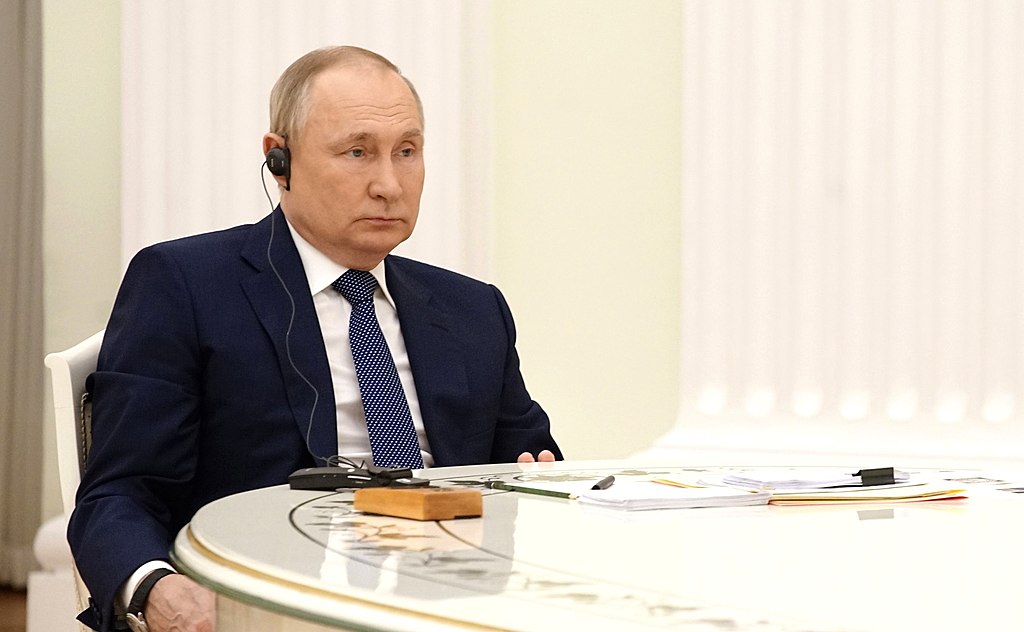Russia has reportedly started withdrawing some of its troops from the Ukrainian border, signaling that it is ready to continue holding endless talks with its Western partners. Tensions in the region, however, remain high as Moscow seems to attempt to raise the stakes in the game of nerves that is unlikely to be over any time soon.
On February 15, Russian lawmakers voted to ask President Vladimir Putin to recognize the self-proclaimed Donetsk People’s Republic and Lugansk People’s Republic, located in the coal-rich Donbass region of Eastern Ukraine. Such a move would mean the end of the Minsk Agreement – a 2015 ceasefire deal that effectively ended offensive military operations in the Donbass, although low-scale positional warfare continues to this day.
Given that over the past seven years, Russian officials repeated numerous times that the Minsk Agreement has no alternative, it is improbable that Putin will rush to recognize the self-proclaimed Donbass republics. Instead, he will likely use the Duma’s resolution to put an additional pressure on Ukraine to implement the deal and grant a de facto autonomy to the breakaway region. From the Ukrainian perspective, any concessions to the Kremlin would represent a capitulation to Moscow, and holding direct talks with representatives of the self-proclaimed republics would mean that Kiev has indirectly recognized their legitimacy. Thus, Ukraine, backed by the United States, will be unlikely to back down to Russia, which will put Putin in a difficult position. If he recognizes the Donbass republics, the West will interpret it as a continuation of the Russian aggression on Ukraine, and will likely impose sanctions on Moscow. If, however, he does not sign a decree on the recognition of the two self-proclaimed entities, it will become clear that the Duma’s resolution was nothing but another of Russia’s empty threats.
Ever since the Kremlin issued its “ultimatum” to the United States in December, demanding an end to NATO’s expansion eastward, Moscow has demonstrated its political impotence several times. Even though Putin threatened a military action if the US rejects his security proposals, to this day he continues to hold talks with Western leaders. Moreover, on February 14 Russian Defense Ministry announced that it has withdrawn some of its units from the Ukrainian border, although the Donbass representatives claim that Ukraine has massed 150.000 troops to the region. On the other hand, the Kremlin still threatens to invade Ukraine if Kiev attempts to restore its sovereignty over the energy-rich region by force.
“If the Ukrainians launch an attack against Russia, you shouldn’t be surprised if we counterattack”
“If the Ukrainians launch an attack against Russia, you shouldn’t be surprised if we counterattack. Or, if they start blatantly killing Russian citizens anywhere — Donbass or wherever”, said Russia’s envoy to the European Union, Vladimir Chizhov.
Indeed, unless Ukraine launches a large-scale military offensive in the Donbass, or if there is a major provocation elsewhere, the Kremlin is unlikely to invade its neighbors, or to recognize the self-proclaimed Donbass republics. Instead, Putin is expected to continue accusing Ukraine of committing “genocide” in the region, but in reality he will do nothing to prevent it. If what is happening in the Donbass is really genocide, then Putin is an accomplice. While claiming that the Ukrainian authorities are involved in notorious crimes, the Russian leader signals his readiness to continue gas transit via Ukraine after 2024 once the current deal expires. At the same time, Putin and other Russian officials pretend to be at odd with the United State over Ukraine, yet at the same time Russia continues to ramp up investing in the US government bonds.
One thing is for sure: for the foreseeable future, people living in the Donbass will continue to be victims of the proxy war fought between Russia and the United States. Even if the Kremlin eventually decides to recognize the Donbass republics, it is not very probable that their position will improve. Firstly, it remains highly uncertain whether Russia would recognize them within their current borders – which is a relatively small territory – or within the administrative borders of the Donetsk and Lugansk oblasts (regions). Also, Russia’s potential recognition will be unlikely to stop the war, given that Ukraine will continue to see the Donbass as an occupied territory. If Russia decides to deploy its troops to the region, the West will see it as an act of invasion and will impose severe sanctions on Moscow.
For the foreseeable future, people living in the Donbass will continue to be victims of the proxy war fought between Russia and the United States.
In order to resolve the Donbass conflict in its favor, Russia would have to capture Kiev and install a pro-Russian puppet regime in Ukraine. At this point, such an option does not seem realistic, although the very fact that several Western nations have decided to temporarily move their embassies from the Ukrainian capital to the city of Lviv in the west of the country could mean that Russia and the US have made a behind-the-scenes deal on a de facto partition of Ukraine.
However, as long as Russian diplomats continue to work in Kiev and other Ukrainian cities, chances for a full-scale invasion will remain low. Cyber warfare, on the other hand, has already become the norm. In January, Ukrainian government websites were targeted by a cyberattack, and on February 15, authorities in Ukraine said a series of cyberattacks have taken the websites of the army, government ministries and major banks in the country offline. The coming weeks will show if such actions were part of preparations for a military attack.
Image credit: www.kremlin.ru

